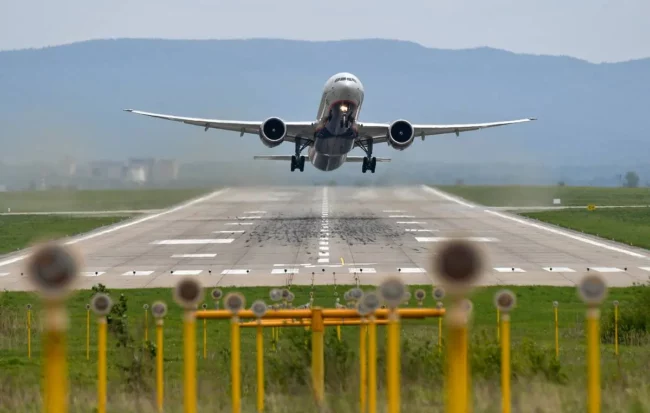Better days are ahead for domestic airline operations in Nigeria as the Federal Government has commenced the process of getting Nigeria removed from the risky country status of international aircraft leasing and insurance companies, which has made the aircraft dry lease policy almost impossible for domestic airline operators in the country.
Under a dry lease arrangement, the lessor provides only the aircraft, and the lessee either flies the aeroplane or supplies the crew independently of the lessor.
Neither party must have an air carrier certificate so long as the aircraft does not carry people or property for compensation or hire.
While the dry lease is cost-effective for airlines as the airlines have the privilege to provide the crew to operate the leased aircraft, the opposite is the wet lease, which many domestic airlines in the country practice.
Under the wet lease arrangement, the lessor provides both the aircraft and the crew and retains operational control of the flight.
Prior to now, Nigerian airlines had access to the dry lease modem until some of the airlines became recalcitrant and unfaithful to the arrangement, a situation that gave Nigeria a bad name with the international lessors withdrawing the services from the Nigerian carriers.
Many of the Nigerian carriers, as a result of the blacklist, have been left with the wet lease option, which costs so much per bloc hour as the airlines have to pay the foreign crew and maintain the aircraft, with the crew reserving the right to ferry the aircraft back to its owner in the event of a default.
The lack of compliance with the aircraft lease agreement prompted Nigeria, through the Nigeria Civil Aviation Authority (NCAA), to sign the Cape Town Convention.
Following the domestication of the Cape Town Convention during the time of Dr Harold Demueren as the then DG NCAA, it subsequently became impossible for any Nigerian carrier to frustrate the efforts of the lessor companies by withdrawing their aircraft once there was a violation of the lease agreement.
The blacklisting of the Nigerian carriers led to the high insurance premiums slammed on them as the foreign insurance tagged Nigeria among the risky countries
The cheering news is that the Minister of Aviation and Aerospace Development, Mr Festus Keyamo, has already met with the international lobby group to remove Nigeria’s name from the black book, which locked the country out of the dry lease opportunity.
The Minister is in talks with the Aircraft Leasing Group (ALG), which comprises the two largest aircraft makers, Airbus and Boeing, among others.
Confirming the development to journalists while marking the third anniversary of United Nigeria Airlines on Monday, the Chief Operating Officer of United Nigeria Airlines, Mr Osita Obiorah, said the Minister is on top of it.
It would help if Nigeria removed the risk of aircraft dry leases. The country’s risk rating has hampered our operations, and we are exposed to wet-lease, which is very expensive.”
“Our appeal is that we don’t miss out on opportunities. Nigeria is the largest market in Africa. The potential is there. The market is large.”
Obiorah, while bemoaning the rising cost of jet fuel, which he said now sells for N1300 per litre, coupled with the scarcity of forex, which he described as the two ingredients for disaster, attributed the survival of airlines amidst the challenges as a miracle.
The airline COO, who cited how the lack of adequate infrastructure had equally impacted airline businesses, hinted that the airline was on the verge of formalising its interline agreement with some carriers, stressing that at the moment, it had informal arrangements with Dana, Air Peace, NG Eagle, and Aero Contractors to airlift their passengers whenever any of the airlines were incapable of doing any of their schedules.
‘Last week, we handled close to 300 passengers in a day with the interline arrangement. We are working to develop the alliance.”
ALSO READ THESE TOP STORIES FROM NIGERIAN TRIBUNE
